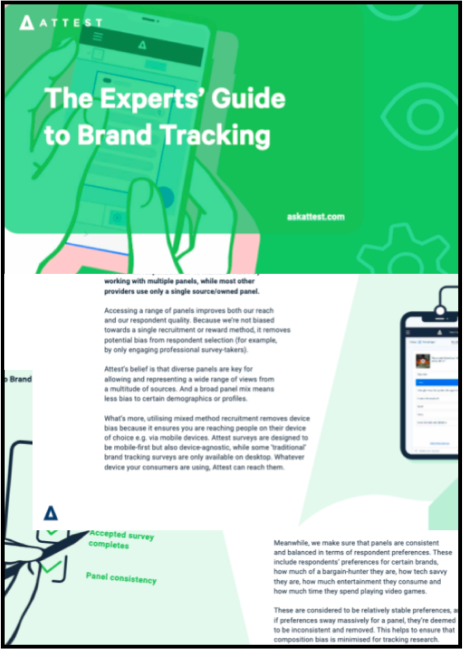COVID-19 brand insight: What do Sainsbury’s, Brewdog, and Dyson have in common?

How are UK consumers feeling about the decisions brands are making during the COVID-19 pandemic? We asked 1,000 people to tell us which brands are getting it right.
The effects of COVID-19 are still being felt the world over. In uncertain times, brands are left wondering what to do next – do they carry on as normal at the risk of appearing to be profiteering, or switch tack entirely in the face of a new global crisis?
The easiest way to get it right is by doing what is right. According to recent brand insights, consumers expect more from brands than they used to – they expect them to act in a way that matches their own views (or challenges them in an educated way), as well as to serve a greater purpose than simply making money. That doesn’t change in the midst of a crisis – consumers believe that the onus is on brands and companies to do the right thing, whether that means keeping staff safe, pivoting the brand to do good where it’s needed, or keeping us happy in volatile times.
Some brands are responding to the COVID-19 pandemic well. Others have slipped up along the way. We decided to ask 1,000 nationally-representative UK residents for their feelings on various brands, and we’ve pulled apart the results below.
At Attest, we’re at the unique position of being able to reach lots of consumers, really quickly. We’ve been collecting and sharing data on consumer response to the COVID-19 outbreak. To stay up-to-date with all of our latest surveys, sign up to our weekly newsletter:
TL;DR
- How people feel about brands influences whether they buy something or not, especially for those who make all of the buying decisions in their household
- Lots of brands have gone the extra mile during the COVID-19 pandemic, and it hasn’t gone unnoticed by consumers – brands like Brewdog, Dyson, and the NHS are seen more positively now by many British consumers
- The NHS in particular has seen a surge of positive sentiment from the UK public
- Brands who have put profit over people, or who haven’t looked after the wellbeing of their staff, are now viewed more negatively by consumers
- Wetherspoons and Sports Direct in particular were criticised heavily for mistreating their staff and refusing to close their stores
Who makes the purchasing decisions?
Over half of the people we surveyed (51.8%) said they make all of the purchasing decisions in their household. They’ll decide which brands they’re loyal to, which they bring into their homes, and which they avoid. A further 25.8% of respondents said they make most purchasing decisions, but not all of them.
How does sentiment towards brands affect purchasing decisions?
The majority of respondents (55.4%) agree that, when shopping, their feelings about a brand influence what they buy. 26.4% said they care more about the price than their feelings towards the brand, and 14.2% said convenience is more important to them. Interestingly, those who said they make all of the purchasing decisions in their household were more likely to say that how they feel about a brand influences their purchases (64.3%).
A very small percentage (0.5%) said ‘other’. When prompted for more detail, those respondents tended to say that it depends on the product, with one saying “if I need quality I’ll go for the brands I know”, again highlighting the importance of brand awareness.
How has brand sentiment changed during COVID-19?
We asked respondents to tell us if they’re feeling more positively, more negatively, or the same about a number of brands who have been mentioned during the Coronavirus pandemic (for good or bad reasons).
The brands people are feeling more positively about:
Sainsbury’s, Tesco, and Waitrose
Britain’s supermarkets are feeling the love right now. Supermarket giants Sainbury’s, Tesco, and Waitrose have been applauded in recent weeks for their approach to protecting the vulnerable. This includes reserving home deliveries for those in isolation, and providing priority shopping hours for NHS staff.
39.4% of respondents said they’re feeling more positively about Sainsbury’s now than before the virus outbreak. 22.1% said the same for Waitrose, and Tesco has 43.7% of respondents feeling more positively than they did before.
Amazon
Despite reports of Amazon workers striking amid unsafe working conditions, the British public still hold the brand in high regard. 38% of people reported feeling more positively towards Amazon than before COVID-19. 52.3% said their feelings are unchanged, and only 9.3% reported feeling more negatively.
Dyson
With the news that Dyson is manufacturing 15,000 ventilators to help fight the coronavirus comes a bump in public positivity for the brand. 36.9% of respondents said they view Dyson more positively now than before.
BBC & ITV
News outlets are undoubtedly seeing a surge in activity as people search for answers amidst the chaos (check out our recent blog for more on how coronavirus news may be contributing to anxiety). It seems that those who favour impartial reporting are being seen positively by the British public – 38.9% of people said they feel more positively towards the BBC now, and 26.2% said the same for ITV.
Netflix
For those of us quarantined at home with little to do, Netflix has become a bit of a saving grace. It’s clear the UK public think so, at least: a massive 42.5% of respondents said they view the brand more favourably now than they did pre-coronavirus.
Check out our UK direct-to-consumer economy report for 2020 for more on how much people love their subscriptions.
Brewdog
A lot of brands are pivoting in response to COVID-19, and Brewdog is one of them. The brewery started producing hand sanitiser to ease the national shortage, and has been donating them to the NHS and local charities ever since. 17.8% of respondents feel more positively towards Brewdog now than before the pandemic, which is even more impressive when you consider that 28.4% of our respondents hadn’t heard of the brand before.
The NHS
Health and wellbeing is front-of-mind right now, for obvious reasons. But no brand is more front-of-mind than the NHS. Whether we’re clapping in the streets, or celebrating the sacrifices key-workers are making, the British public views the NHS very highly – and that’s backed up in the data.
An unbelievable 79.7% of respondents said they feel more positively towards the NHS now than they did before the coronavirus outbreak. Of that 79.7%, 60.5% said they ‘love it even more’, and 19.2% said they feel ‘slightly more positively’.
Honourable mentions:
We couldn’t ask about every brand, but we did ask survey-takers for their thoughts on the brands that have done a great job during the crisis. UK supermarket Morrisons was mentioned both for protecting its workers and for providing for NHS staff. Vauxhall, the car manufacturer, was praised for closing down their factories to prevent the virus spreading, and Starbucks was lauded for giving staff paid leave. Travelodge was mentioned for providing housing to the homeless, and Apple for giving out masks in the US.
The brands people are feeling more negatively about:
Though most brands were responded to positively or neutrally, a few brands have clearly gone down in the public’s estimations as a result of their responses to COVID-19.
Sports Direct
As the UK lockdown began, only businesses classed as ‘essential’ were allowed to stay open. Fitness brand Sports Direct came under fire for disregarding the government guidelines and remaining open anyway, claiming the brand was “uniquely well placed to help keep the UK as fit and healthy as possible”. UK consumers didn’t take kindly to that.
Only 35.6% of respondents said they feel the same way about the brand now as they did before the virus outbreak, while 51.5% of people said they either feel ‘slightly more negatively’ about the brand, or they ‘really don’t like it now’.
Daily Mail
While the BBC and ITV are seeing increases in positive public sentiment, the opposite is true for the Daily Mail. The news outlet is known for being divisive, with clickbait headlines designed to create a shock factor – and plenty of people don’t like it. 20.8% of respondents feel more negatively towards the brand than before.
Wetherspoons
Similarly to Sports Direct, pub brand Wetherspoons hit the headlines recently for refusing to close despite government guidelines. The brand’s boss, Tim Martin, said: “Closure is much more draconian, and we don’t think that it brings health benefits, and it certainly doesn’t bring economic benefits.”
People don’t generally take kindly to brands putting profits ahead of people, especially not when the effects of a pandemic are being felt across the globe. 43.9% of respondents said they now like the brand less.
Virgin Airlines
The travel sector is one of the worst affected by the coronavirus outbreak, with flights grounded all over the world and uncertainty causing a drop in holiday bookings. Virgin Airlines, owned by one of the richest men in the world Richard Branson, was met with backlash when the brand asked its staff to take 8 weeks of unpaid leave during the pandemic. 22.7% of Brits said that they now feel more negatively about Virgin Airlines than they did before.
Less-honourable mentions:
We also asked people to tell us about any brands that they think have done a particularly bad job of navigating this crisis. Several brands that were mentioned fall into the travel sector: Ryanair and Jet2 were amongst them, criticised for not taking care of their staff and refusing to give refunds on cancelled flights. Amazon and eBay were called out for price-gouging and profiteering during a crisis, especially for essential items like masks. WHSmith, Waterstones, and Halfords also received some negative comments, specifically for trying to stay open against the advice of the government.
You can find the full survey results here.
Tell us what you think of this article by leaving a comment on LinkedIn.
Or share it on:


